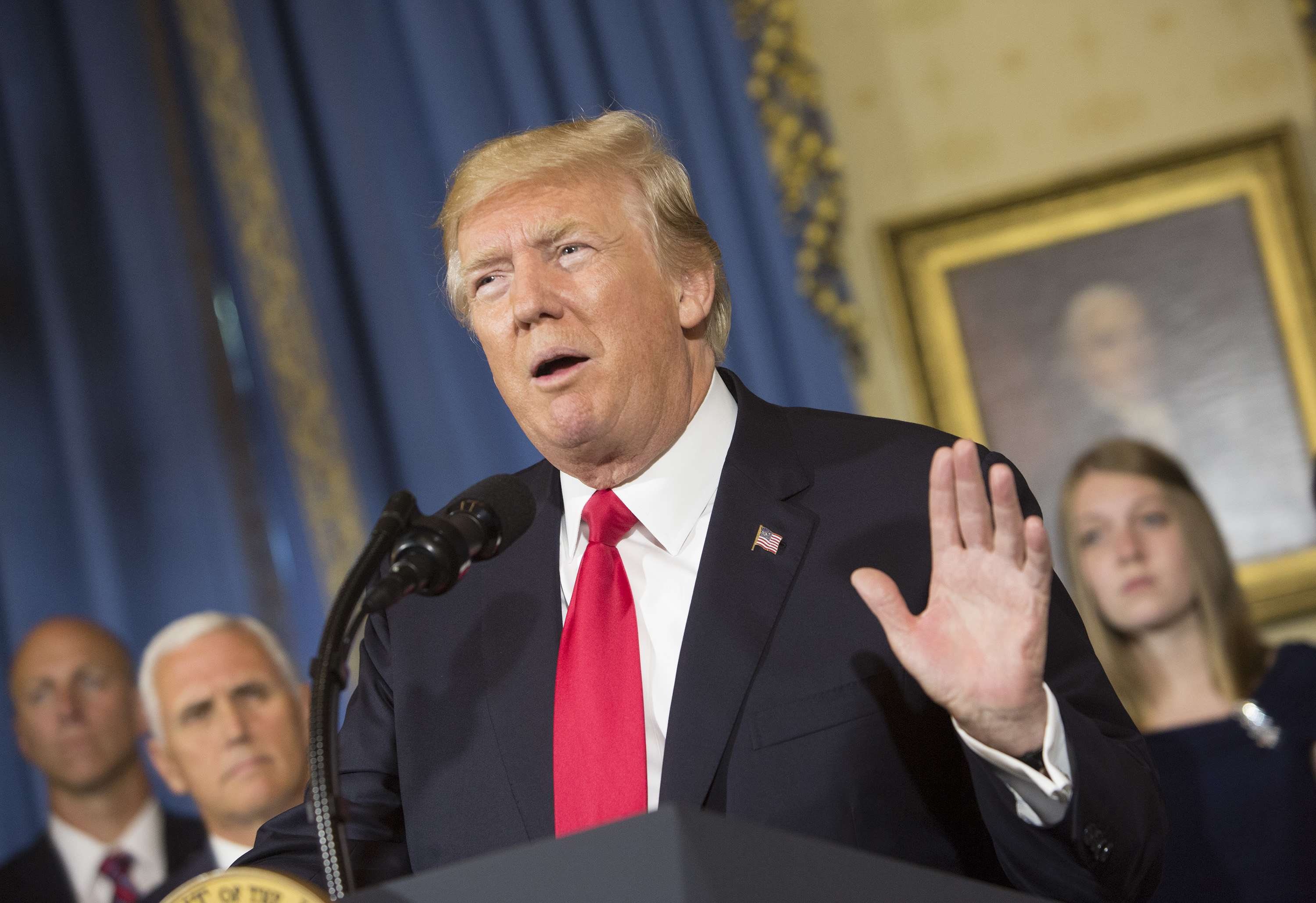A senior staffer on the National Security Council was dismissed last month after penning a controversial memo in May claiming that “Maoist” forces were working to subvert President Donald Trump’s agenda, The Atlantic reported on Wednesday.
The staffer, Rich Higgins, is a former Pentagon official who served as a director for strategic planning on the NSC.
In his memo, Higgins said Islamists, bankers, globalists, and the “deep state” were actively working against Trump, and claimed the ongoing Russia controversy was made up in an effort to sink Trump’s agenda.
“Globalists and Islamists recognize that for their visions to succeed, America, both as an ideal and as a national and political identity, must be destroyed,” said an excerpt from the memo posted online by The Atlantic.
Higgins also touched on the idea of an American "deep state," which he characterized as a "counter-state," the formation of which "is essential to seizing state power."
"Functioning as a hostile compete state acting within an existing state, it has an alternative structure," Higgins wrote. "Political warfare operates as one of the activities of the 'counter-state.'"
The goal of these anti-Trump forces, the memo said, was the promotion of "cultural Marxist outcomes" brought about as the result of "the left's" alliance with "Islamist organizations at local, national and international levels."
"They operate in social media, television, the 24-hour news cycle in all media and are entrenched at the upper levels of the bureaucracies," Higgins argued. The risk these anti-Trump actors posed, he said, was a national security threat.
The memo was circulated among people outside the White House and eventually came to the attention of the White House counsel's office, The Atlantic reported. After Higgins was asked about the memo on July 21, he was informed by deputy national security adviser Ricky Waddell that he was being dismissed.

Higgins' dismissal represents a victory for national security adviser H.R. McMaster, a retired army general who has reportedly found himself at odds with Trump's loyalists and the president himself.
But Higgins' fear of a "deep state" is shared by some of Trump's staunchest allies, including White House chief strategist Steve Bannon and Fox News host Sean Hannity.
Hannity spoke at length about the need to "purge" deep state "saboteurs" during a segment in March.
"Tonight, it's time for the Trump administration to purge these saboteurs before it's too late," Hannity said, referring to "deep-state Obama-holdover government bureaucrats who are hell-bent on destroying this president."
And in May, after The Washington Post reported that Trump had disclosed highly-classified code-word information to Russian officials in the Oval Office one day after firing FBI director James Comey, one White House official told The Daily Beast that Trump's "animus and suspicion towards 'Deep State'" actors would most likely skyrocket.
Of course, an American deep state does not, in fact, exist. And in places where it does exist - like Turkey, Egypt, and Pakistan - it typically results in bloody outcomes like mass killings, pogroms, and bombings.

